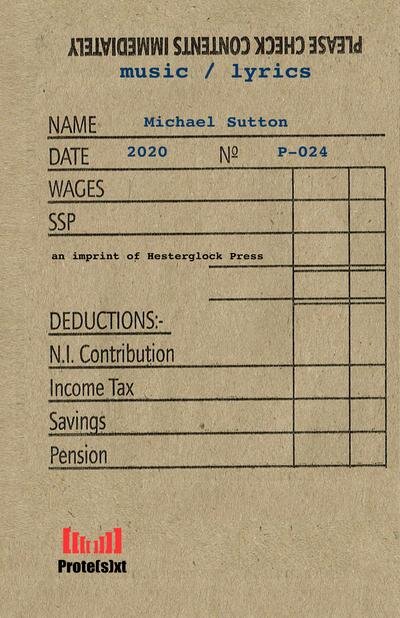Michael and I at the Freeword Centre 2012
I moved to London 15 years ago this September and I spent a decade of that time living in Latimer road, West London. In that decade, the poet of the area, often visible on the street, by chance, and in every bookstore, was the inimitable Michael Horovitz. I met Michael through the brilliant Sheila Ramage, who ran the Notting Hill bookshop for decades, and together they patiently initiated me into a London poetry culture that has formed a significant part of my work and what I see as a tradition I wish to be part of. Erich Fried, Christopher Logue, Alexander Trocchi, Elias Canetti, Ginberg, Burroughs, Gysin and more, the stories were endless and often unrepeatable. Those times are long gone. Michael had lessons for me beyond the tales of the past too, and he generously passed on much of what he had learned from his iconoclastic intervention into British poetry in the 1960s and beyond. He spoke to me specifically about the perils of being perceived as an organiser and anthologist in a national poetry culture that still championed a certain kind of singular poets, whose talent was perceived as mysterious and particular. I mean this not as a slight, but at times his chagrin at having his own work overlooked, and perhaps his place in British poetry too, educated me in other ways, on what would lie ahead for me if I sank my whole heart and soul into trying to change things around me. I ate with him at his home a few times and was fortunate to have him do a series of my events, early on, around 2012 to 2013. His achievements were remarkable, the Albert Hall poetry readings and his Children of Albion anthology the best known, whose importance can't be overstated (and are overlooked, even for their fame – they should've marked a turning point in the UK but remain instead vital notes of resistance to literary parochialism) but he never stopped writing, working, performing, anthologising, printing and sharing. He was a completely unique man, gregarious, droll, ebullient and I only knew him in his 70s and 80s. The energy he must've had as a young man, I can only imagine. To me, his work was also representative of something vital, that beat poetry has a place in the UK poetic vernacular. His work was almost pure beat, if that might be allowed to be a phrase, carrying with it the confident directness of the post-war American enthusiasm and the influence of jazz music on literature. Notting Hill and its environs will be a more muted place without him, as will British poetry in general. I shall celebrate his 86 years by revisiting his poetry and sharing it with friends.
A very fine and detailed obituary has been written here by Douglas Field https://www.theguardian.com/books/2021/jul/11/michael-horovitz-obituary





















